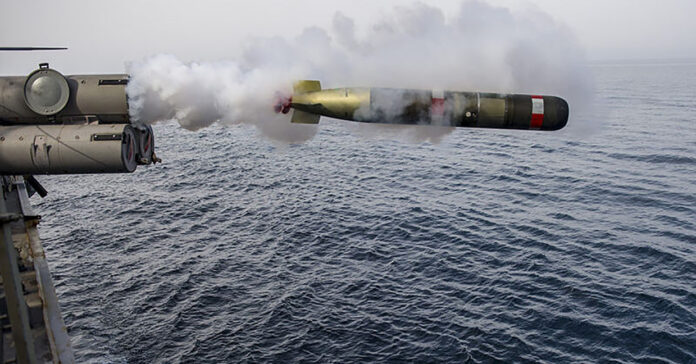With Huntsville at the center of propulsion technology, Aerojet Rocketdyne has successfully built and tested groundbreaking propulsion that can be used to power the U.S. Navy’s next generation of torpedoes.
Known as a Stored Chemical Energy Propulsion (SCEPS) lithium boiler, Aeroject Rocketdyne’s advanced propulsion system developed in Huntsville, improves the capabilities of the MK 54 MOD 2 torpedo.
“Aerojet Rocketdyne’s self-funded manufacturing of a SCEPS lithium boiler demonstrates our strong commitment to delivering affordable, low risk and high-quality products to the U.S. Navy,” said Eileen P. Drake, Aerojet Rocketdyne CEO and president.
“Maritime security is essential to national security,” she continued. “The Aerojet Rocketdyne team is proud to enhance and advance our investment in SCEPS propulsion to power the nation’s cutting-edge undersea capability that will ultimately protect what we value most – our homeland, our U.S. military service members and our allies.”
Aerojet Rocketdyne independently funded the fabrication and testing of the SCEPS lithium-based thermal energy system, which uses an energetic chemical reaction to power a steam turbine. The boiler design builds upon the Penn State University Applied Research Laboratory’s (PSU-ARL) technical data package distributed by the U.S. Navy in 2020 for the Compact Rapid Attack Weapon (CRAW) program.
Aerojet Rocketdyne is under contract to the U.S. Navy to deliver SCEPS prototype afterbody/tailcone assemblies for an advanced propulsion system for the MK 54 MOD 2 Advanced Lightweight Torpedo (ALWT).
Don’t miss out! Subscribe to our email newsletter to have all our smart stories delivered to your inbox.



